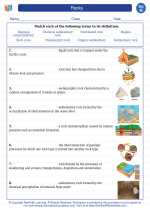Nuclear Fission
Nuclear fission is a process in which the nucleus of an atom is split into two or more smaller nuclei, along with the release of a large amount of energy. This process is the basis for nuclear power plants and nuclear weapons.
Process of Nuclear Fission
The process of nuclear fission typically involves bombarding a heavy atomic nucleus, such as that of uranium-235, with a neutron. This causes the nucleus to become unstable and split into two or more smaller nuclei, along with the release of additional neutrons and a large amount of energy in the form of gamma rays and kinetic energy.
Energy Release
The energy released during nuclear fission is due to the conversion of mass into energy, as described by Einstein's famous equation E=mc^2, where E is energy, m is the mass lost during the process, and c is the speed of light. This energy release is harnessed in nuclear power plants to generate electricity.
Applications
Nuclear fission has both peaceful and destructive applications. In nuclear power plants, controlled fission reactions are utilized to generate electricity, providing a significant source of energy. On the other hand, nuclear fission is also the principle behind the explosive power of nuclear weapons.
Study Guide
Here are some key points to remember about nuclear fission:
- Nuclear fission is the process of splitting the nucleus of an atom into smaller nuclei.
- It is initiated by bombarding a heavy atomic nucleus with a neutron.
- The process releases a large amount of energy in the form of gamma rays and kinetic energy.
- The energy released is due to the conversion of mass into energy, as described by Einstein's equation E=mc^2.
- Nuclear fission has both peaceful applications in nuclear power plants and destructive applications in nuclear weapons.
[Nuclear Fission] Related Worksheets and Study Guides:
.◂Science Worksheets and Study Guides Eighth Grade. Rocks
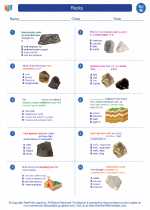
 Worksheet/Answer key
Worksheet/Answer key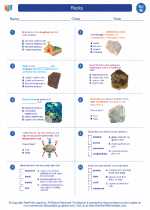
 Worksheet/Answer key
Worksheet/Answer key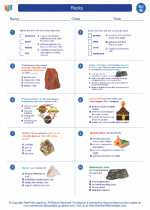
 Vocabulary/Answer key
Vocabulary/Answer key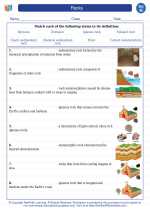
 Vocabulary/Answer key
Vocabulary/Answer key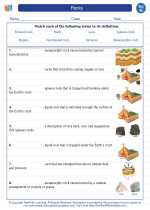
 Vocabulary/Answer key
Vocabulary/Answer key